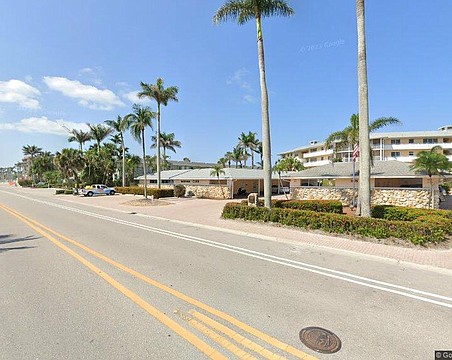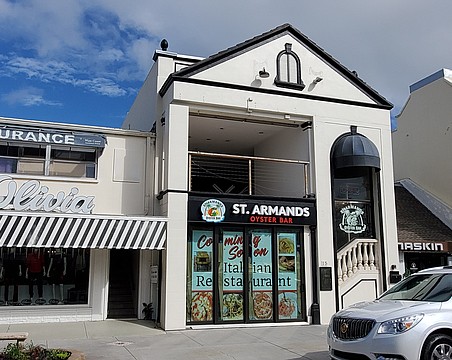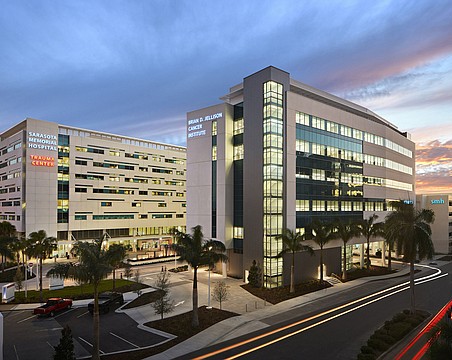Earth to Naples
GOVERNMENT WATCH by Jean Gruss | Editor/Lee-Collier
Collier County already has the highest taxes on new construction in the state. Now, the city of Naples wants to raise them, too, just as the economy softens.
Despite the weakening economy, the Naples City Council is forging ahead with plans to raise taxes on new construction. The action comes on the heels of another similar, but much more substantial, tax increase by Collier County commissioners.
While county commissioners bemoan the lack of affordable housing, the impact fees for a home is nearly $40,000. Want to build a drive-in restaurant in the Golden Gate area of Collier County? It's going to cost $178,970 per 1,000 square feet in new-construction taxes. How about a convenience store in North Naples? Be ready to fork over $121,495 per 1,000 square feet.
Fact is, Collier County has the highest taxes on new construction in the state and builders argue that these taxes have exacerbated the downturn in the construction industry. Economic development recruiters say Collier's taxes are a big reason so few companies relocate to the Naples area.
To be sure, taxes aren't the only reason Collier County is unattractive to new businesses. High land costs and a lengthy and capricious permitting process have hampered entrepreneurs for years.
Meanwhile, up and down Gulf Coast counties, commissions are exploring ways to suspend or even eliminate taxes on new construction, euphemistically known as "impact fees."
Sarasota and Lee counties are discussing freezing or lowering impact fees. Charlotte County rolled back these taxes for one year. DeSoto County went one step further: Commissioners suspended and refunded all collections they made since they started levying the tax in 2006.
Because of its impact fees, Collier is widely considered one of the most anti-business counties on the Gulf Coast. "They don't want more development to take place, that's the bottom line," says Russell Weyer, an economist with Fishkind & Associates in Naples.
Naples seeks a tax boost
It's been 10 years since Naples raised taxes on new construction and the city council recently took the first step to approve raising them. A second hearing will be scheduled later this month.
For commercial developers, taxes will nearly double from $735 per $1,000 square feet to $1,440. Residential new-construction taxes will triple to $1,369. But those new rates could be too low, says City Manager William Moss.
At the first hearing, city council members asked to include new park projects such as the Gordon River Greenway Project that could cost the city "many millions of dollars," Moss says.
"I don't think it's a huge issue," says Naples Mayor Bill Barnett, who recently was elected to a third term. No one spoke up against the tax increase at the city council meeting and representatives from the building industry were absent.
Still, the issue might face further debate as builders learn about the tax increase. "We're not raising impact fees yet," Barnett cautions.
Naples appears to be weathering the economic downturn better than its neighbors, but anecdotal evidence points to concerns. "We're isolated to some extent, but everybody's a little edgy," Barnett says. For example, he says managers at the Ritz Carlton's told him hotel business is down 20% because corporate clients have canceled meetings.
If the economy is softening, why raise taxes on new construction? "That's going to come back for a long discussion," Barnett says.
Collier highest in the state
Naples' taxes on new construction pale in comparison to Collier's. County commissioners voted against delaying a recent increase by a vote of 3-2.
Collier County Commission Chairman Tom Henning was one of those who wanted to delay the tax increase. "I had some hope, but it didn't make it," he says.
Road impact fees jumped 29%, park taxes rose 15% and government buildings went up 12%. "You might just prevent someone from making a capital investment," Henning says. "Somebody has to convince the commissioners that lowering impact fees will help the economy," he says. "I don't know if it's helped DeSoto and Charlotte."
In some cases, the county sold bonds to fund projects that were backed by taxes on new construction. Replacing that revenue by raising taxes on residents is widely considered political suicide.
The situation is aggravated by the fact that some builders are reluctant to criticize impact fees for fear of losing government business. In addition, high taxes have acted as an economic moat for owners of existing buildings and those with a low basis in their land because it keeps the competition out. Even allies such as Realtors aren't eager to back the builders for fear that they too will be taxed.
But the Collier Building Industry Association says the county must cut back on spending. "The problem is our county has such an appetite for money," says Jeff Maddox, a commercial builder and president of the association.
In a softening economy, government must make the difficult decisions to lower spending. "If you live a fancy lifestyle, it's hard to go back to the trailer park," he says.
Maddox says the association's pleas to lower taxes have fallen on deaf ears. "The builders get blamed for everything," he says.
Ironically, Collier's high taxes and lengthy permitting kept builders from overbuilding like they did in Lee County, says Fishkind's Weyer. That's why lowering taxes in Collier would be more likely to spur new construction than it would in Lee, where a glut of commercial space and homes must first be absorbed before lower impact fees would have any meaningful effect.
Lee County commissioners reflected on that fact recently when they discussed lowering impact fees. Instead, they suggested speeding up spending on government projects. "We need to start spending all of this billion and a half worth of cash we're sitting on," says Lee County Commissioner Brian Bigelow at a recent meeting. "I would point out three pet projects if county administration was looking to this board for priorities."
Lower taxes equals more revenue
Collier might consider an analysis Fishkind's Weyer did for Pasco County recently. In his analysis of 40 counties that impose new-construction taxes, Weyer found that higher revenues to fund public projects would result from lower impact fees.
Weyer recommended that Pasco reduce impact fees on hotels and offices and the commission followed his advice. That's because lowering them would result in more collections to pay for roads and diversify their economy.
Collier County would likely see the same benefits if it lowered taxes on new construction.
For example, Weyer found that demand for office space in Collier County would fall 2.1% for every 1% increase in impact fees over the optimal rate. It's what he calls "the price elasticity of demand." The county would actually collect more revenue if it lowered impact fees because it would make more construction projects economically feasible.
"Lowering impact fees would probably be a good thing in Collier County," Weyer says.
REVIEW SUMMARY
City. Naples
Issue. More impact fee increases.
Key. Naples has not increased the fees for 10 years, but is now the right time?





